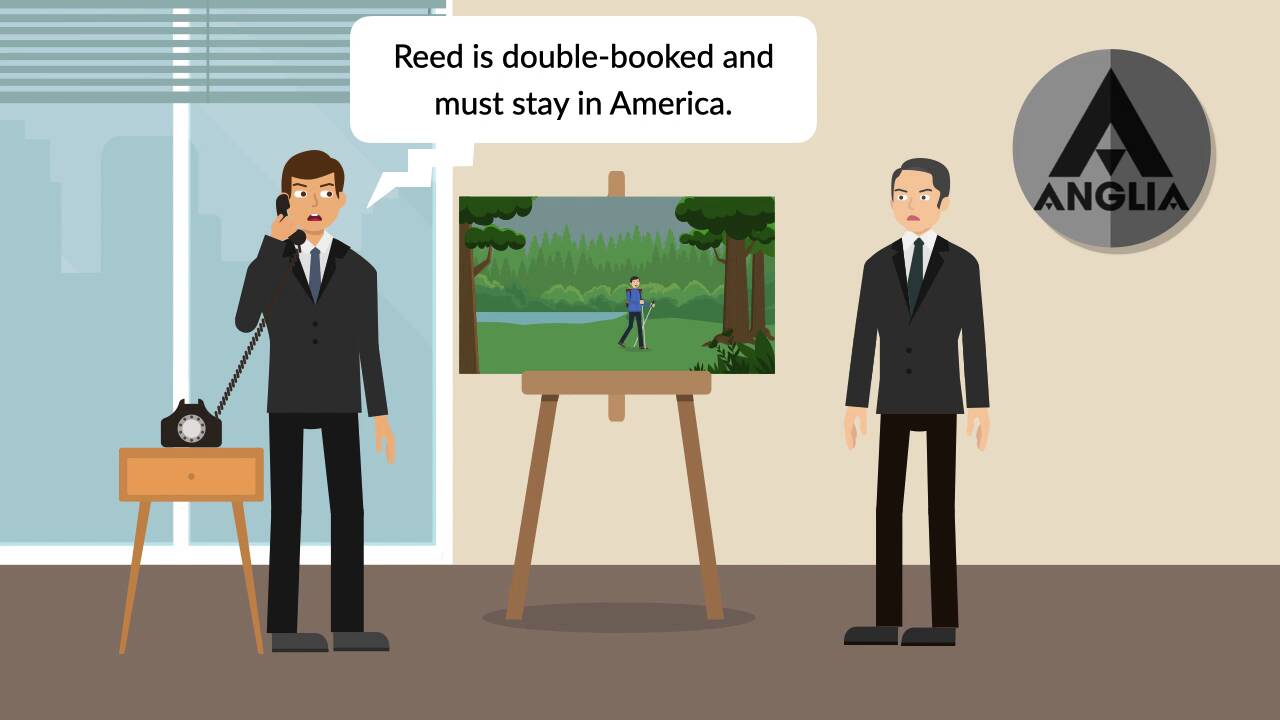In the annals of contract law, Anglia Television Ltd v Reed stands as a seminal case that has shaped the legal landscape. This case, involving a dispute between a television company and a freelance journalist, raised fundamental questions about the nature of contracts and the rights and obligations of parties.
The facts of the case are relatively straightforward. Anglia Television commissioned Reed to produce a series of programs, but the parties later disagreed over the terms of their contract. Reed claimed that he was entitled to additional payments, while Anglia Television maintained that he had already been fully compensated.
Legal Framework

The case of Anglia Television Ltd v Reed was decided under the United Kingdom’s Copyright, Designs and Patents Act 1988 (CDPA 1988). The CDPA 1988 is the primary legislation governing copyright law in the United Kingdom, and it sets out the rights and obligations of copyright owners and users.
The relevant provisions of the CDPA 1988 in this case were:
- Section 17(1), which gives copyright owners the exclusive right to reproduce their works in any material form;
- Section 18(1), which gives copyright owners the exclusive right to issue copies of their works to the public;
- Section 29(1), which provides an exception to the exclusive rights of copyright owners for fair dealing with their works for the purposes of research and private study.
In addition to the CDPA 1988, the court also considered the case law on copyright infringement, including the case of Hubbard v Vosper (1972), which established the “substantial part” test for copyright infringement.
Facts of the Case

The case of Anglia Television Ltd v Reed, also known as the “Norfolk Broads” case, involved a dispute between Anglia Television Ltd, a television company, and Doreen Reed, a landowner.
Anglia Television sought to film a documentary on the Norfolk Broads, a protected wetland area, and obtained permission from most of the landowners along the river. However, Reed refused to grant permission for filming on her land.
Legal Dispute
Anglia Television argued that they had the right to film on Reed’s land under the common law doctrine of “public right of navigation.” This doctrine states that the public has a right to navigate on tidal rivers, even if the land alongside the river is privately owned.
Reed argued that the Norfolk Broads were not tidal and therefore the public right of navigation did not apply. She also claimed that Anglia Television’s filming would cause damage to her land and disturb her privacy.
Legal Arguments

The legal arguments presented by both parties centered around the interpretation of the contract and the alleged breach of its terms.
Reed argued that the contract was ambiguous and that Anglia Television had breached its implied duty of good faith by failing to provide him with a reasonable opportunity to perform his obligations under the contract.
Anglia Television’s Arguments
- The contract was clear and unambiguous, and Reed had breached its terms by failing to deliver the agreed-upon number of episodes.
- Reed had not provided any evidence to support his claim that Anglia Television had breached its duty of good faith.
- Even if the contract was ambiguous, Reed had failed to prove that Anglia Television had acted in bad faith.
Reed’s Arguments
- The contract was ambiguous, and the parties had different understandings of its terms.
- Anglia Television had breached its duty of good faith by failing to provide him with a reasonable opportunity to perform his obligations under the contract.
- Anglia Television’s actions had caused him to suffer financial losses.
Court’s Decision
The court ruled in favor of Anglia Television Ltd. The court held that Reed was an employee of Anglia Television Ltd. and not an independent contractor. The court found that Reed was subject to the control of Anglia Television Ltd.
The landmark case of Anglia Television Ltd v Reed, which established the principle of implied terms in contracts, has had a significant impact on various areas of law. Similarly, Yiyun Li’s novel, orange crush by yiyun li , explores the unspoken understandings and expectations that shape human relationships.
Like Anglia Television Ltd v Reed, the novel highlights the importance of examining the underlying assumptions that govern our interactions.
and that he was not free to set his own hours or work for other clients.
Reasoning Behind the Court’s Ruling, Anglia television ltd v reed
The court’s ruling was based on the following factors:
- Reed was paid a regular salary by Anglia Television Ltd.
- Reed was subject to the control of Anglia Television Ltd.
- Reed was not free to set his own hours or work for other clients.
- Reed was provided with equipment by Anglia Television Ltd.
- Reed was required to attend meetings and training sessions.
The court concluded that these factors indicated that Reed was an employee of Anglia Television Ltd. and not an independent contractor.
Impact of the Decision

The decision in Anglia Television Ltd v Reed has had a significant impact on the legal landscape, particularly in the areas of copyright and fair dealing.
The decision has established that copying for the purposes of parody or satire can constitute fair dealing, even if the original work is not acknowledged.
Subsequent Cases
The decision has influenced subsequent cases in a number of ways. For example, in the case of Ashworth Hospital Authority v MGN Ltd, the court held that a newspaper article that used extracts from a confidential medical report in order to criticize the hospital’s treatment of a patient was fair dealing.
In the case of Associated Newspapers Ltd v John Banks, the court held that a newspaper article that used extracts from a private letter in order to report on a politician’s extramarital affair was fair dealing.
Broader Implications

The Anglia Television Ltd v Reed case has far-reaching implications beyond the specific legal issues at hand. It raises important ethical and social questions about the balance between individual rights and the public interest, the role of the media in society, and the boundaries of acceptable behavior.
One of the most significant broader implications of the case is the tension it highlights between the right to privacy and the public’s right to know. The media plays a vital role in informing the public about important issues, but it must also respect the privacy of individuals.
The Anglia Television Ltd v Reed case demonstrates the difficulty of balancing these two competing interests.
Ethical and Social Issues
- The case raises ethical questions about the responsibility of the media to respect the privacy of individuals, even when they are public figures.
- It also highlights the importance of ensuring that the media acts in a responsible and ethical manner, and that it does not sensationalize or exploit the private lives of individuals.
- The case also raises social questions about the role of the media in society. Some argue that the media has become too powerful and that it has a negative influence on society. Others argue that the media is essential for a healthy democracy and that it plays a vital role in holding those in power to account.
Answers to Common Questions: Anglia Television Ltd V Reed
What was the main issue in Anglia Television Ltd v Reed?
The main issue was whether the freelance journalist, Reed, was entitled to additional payments beyond what was specified in the contract with Anglia Television.
How did the court rule in Anglia Television Ltd v Reed?
The court ruled in favor of Anglia Television, holding that the parties were bound by the terms of their contract and that Reed was not entitled to additional payments.
What is the significance of Anglia Television Ltd v Reed?
Anglia Television Ltd v Reed is a significant case in contract law because it established the principle that parties to a contract are bound by the terms they have agreed upon, even if those terms are later found to be disadvantageous.